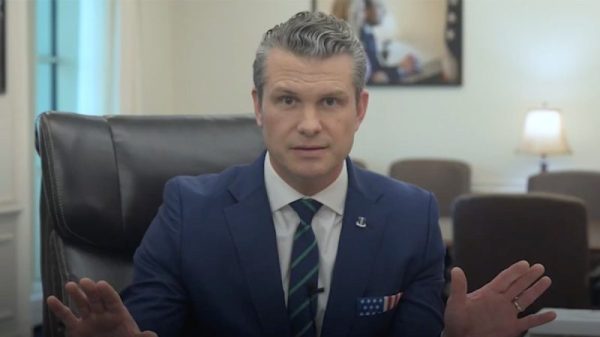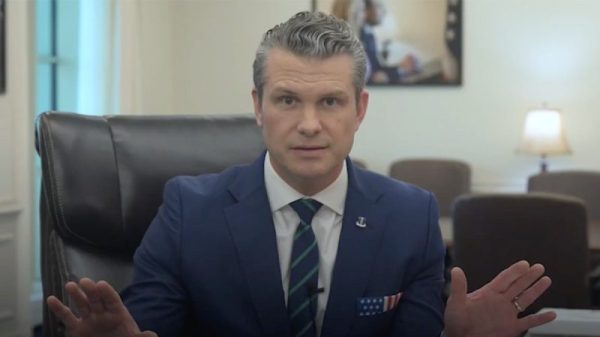The Supreme Court cleared the way Wednesday for a Biden administration plan to cut greenhouse gases and other emissions from fossil-fuel fired power plants, denying an emergency appeal by more than two dozen Republican-led states, utilities and others.
The groups sought the emergency injunction while they pursue litigation to block the regulations, claiming the Environmental Protection Agency’s power plant plan would force the premature closure of some plants, cost jobs and jeopardize the reliability of the power grid.
The Biden administration said the plan was calibrated to avoid economic harm and problems for the electric grid, and that the rule would protect communities from pollution and help the nation meet long-term goals to combat the climate crisis. The initiative is one of the administration’s most significant actions on global warming.
It is the third time this month the justices have refused to immediately block a Biden administrative initiative seeking to clean up power plants and oil and gas drilling operations, giving a major — if perhaps temporary — boost to the president’s efforts to combat climate change and limit air pollution. Litigation over all three initiatives are still playing out in lower courts.
As is customary, the majority of the justices did not give a reason as to why they denied the emergency request on carbon emissions from power plants. But a statement attached to the denial order indicates that some justices may be inclined to eventually block or strike down the power plant regulations.
Justice Clarence Thomas said he would have granted the application for a stay, while Justices Brett Kavanaugh joined by Neil M. Gorsuch issued a statement saying the applicants shown a “strong likelihood of success on the merits to at least some of their challenges.’ Kavanaugh and Gorsuch said they voted to deny the stay because the applicants do not need to start compliance work until June of next year.
“Given the that the D.C. Circuit is proceeding with dispatch, it should resolve the case in its current term,” they wrote. “After the D.C. Circuit decides the case, the nonprevailing parties could, if circumstances warrant, seek appropriate relief in this court.”
The high court’s actions this month break with a string of earlier decisions in which the justices curbed the EPA’s ability to regulate pollution. On Oct. 4, the high court declined to stay new rules on mercury emissions from power plants and curbs on methane emissions from oil and gas drilling operations.
During the term that ended July 1, the court placed on hold an ambitious EPA plan to address smog-forming air pollution that drifts across state lines, which companies and trade associations are challenging in lower courts. The justices also weakened the EPA’s ability to enforce the Clean Water Act last year and in 2022 limited the agency’s ability to regulate power plant emissions that contribute to climate change — a major opinion that also curbed the regulatory power of the executive branch.
The power plant plan that was the focus of the most recent Supreme Court action was finalized in April. It would require all coal-fired power plants that operate past 2039 and new natural gas-fired power plants to reduce carbon emissions by 90 percent.
The EPA estimates the plan by 2047 would reduce carbon emissions by about 1.4 billion metric tons, which is roughly equivalent to the annual emissions of 328 million cars. In a single year, the agency said, the plan could avert 1,200 premature deaths and hundreds of trips to the emergency room.
Critics of the initiative challenged it in the D.C. Circuit Court of Appeals, which denied a stay. The parties then sought an emergency order from the high court.
Environmentalists joined the agency in hailing Wednesday’s action as a major victory.
“The misguided attempts to block the EPA’s power plant rules through the Supreme Court’s shadow docket came up empty,” said Frank Sturges, an attorney at the Clean Energy Task Force. “We’re confident these rules will ultimately be upheld.”
EPA spokesman Nick Conger said in a statement that agency officials “look forward to implementing this rule, which is based on proven and cost-effective control technologies, to secure up to $370 billion in climate and public health net benefits over the next two decades.”
Rich Nolan, president and chief executive of the National Mining Association, predicted the rule could cause economic catastrophe.
“While we’re disappointed that some of the justices failed to recognize the immediate harm to industry and consumers posed by this reckless rule, we look forward to continuing to making our case in the D.C. Circuit,” Nolan said in a statement. “By constructing a rule that offers power plant operators the choice of either employing technologies that do not yet exist on a commercial, affordable scale or shutting down, the EPA has wrested control of our nation’s energy policy with neither the legal authority nor expertise to do so, all at the exact time that electricity demand is forecast to double.”
Republican presidential nominee Donald Trump said at a campaign stop in Pennsylvania earlier this year that he would eliminate the power plant rule if reelected, saying it was an “anti-American energy crusade.”
The appeals court in the D.C. Circuit found the states and utilities are not likely to succeed on the merits of their case and said the plaintiffs could not demonstrate a need for an emergency injunction because the compliance deadlines for the regulations don’t begin before 2030.
The D.C. Circuit also found the power plant plan did not trigger the “major questions” doctrine that says agencies seeking to decide issues of major national significance must have clear congressional authorization to do so.


































